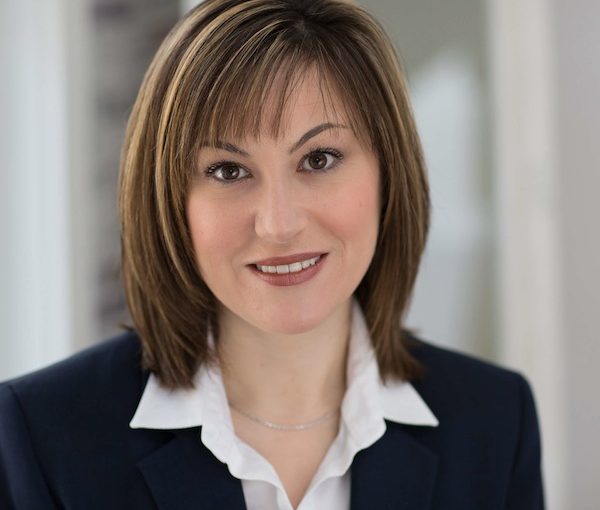Karen Tyrell, founder of Personalized Dementia Solutions, spoke recently at an online event hosted by Beth Tikvah and the Kehila Society. (photo from dementiasolutions.ca)
To care for people with dementia, caregivers must first ensure they care for themselves. That was a message from Karen Tyrell, an expert with 25 years’ experience assisting people with dementia and those who care for them.
May is caregiver awareness month and Tyrell, who founded Personalized Dementia Solutions, was speaking at an online event May 19, sponsored by Beth Tikvah Synagogue and the Kehila Society of Richmond. Tyrell, who is also author of Cracking the
Dementia Code: Creative Solutions to Cope with Changed Behaviours, teaches people how to deal with dementia in loved ones through one-on-one and group consultation.
Common symptoms of dementia include impairment of memory and thinking, judgment and communication problems and personality changes.
Tyrell noted that the stress caused by caregiving for a person with dementia can result in physical and emotional health issues, some of which themselves can exacerbate the causes that bring on dementia. So, it can become a cycle in families.
She offered a range of strategies, such as breathing exercises, for caregivers dealing with stress. She also emphasized the need to share your concerns with others before they evolve into a crisis.
“As soon as you notice your stress levels are starting to climb and you’re having a hard time to breathe because of what you’re going through, please reach out, tell someone,” she said. “Reach out to your community, reach out to your doctor, reach out to a counselor, reach out to the Alzheimer’s Society in the community that you’re in. Reach out to someone to tell them, because, when you talk about it, then others will give you suggestions on what you can do.”
She urged caregivers to accept help when offered.
“Please don’t think that you’re going to be fine or that you’re going to be an inconvenience to others,” she said. “You need that help. Nobody can handle caring for someone with progressive dementia all by themselves. It’s not humanly possible from the beginning to the end.”
Another tip is to have realistic expectations.
“If you are thinking, I can do this all on my own because I’m the wife and this is my duty, in some ways, I would tell you, that’s great. You’re doing great,” Tyrell said. “But is it realistic that you can do this all on your own?”
Setting boundaries is another key.
“It’s hard to say no to people, but, when you’re setting boundaries for what you will and will not do, and say no to certain things, then you’re going to take better care of yourself,” she explained. For example, some people accept that they can continue to care for their loved one at home until, for example, the person becomes incontinent more than once a day, or until the person with dementia is no longer able to go to their twice-a-week adult day program, giving the caregiver a short respite.
An inability to get proper sleep is a dangerous cycle, Tyrell warned. Exhaustion on the part of the caregiver is a recipe for disaster. Melatonin for the caregiver or the person with dementia could help, or a paid worker to sleep on the couch for a limited period in case they are needed, she said. If possible, the caregiver might get away for a couple of days or the loved one could go into a few days of respite care.
Developing negative emotions and responses is understandable, she added, but finding ways to be positive is critical.
“Try to find some of the positives of your situation,” she said. “One fellow said him and his dad never got along all of their life, they had a really rocky relationship, but when he started to develop dementia, his personality changed and they became best friends. He looked at the positive: ‘It’s not fun to see my dad go through this but I found something good in this.’”
Laughter is a medicine, she added. Remaining social – even via the computer if the pandemic makes in-person socializing difficult – and having laughs with friends can go a long way to keeping a caregiver healthy.
Meditation, yoga, prayer, relaxing exercises or activities are also important tools.
“Exercise is proven to help us burn adrenaline,” she said. “So, when you’re stressed, go for a walk, try to burn off some of that adrenaline. Move that body. Walking is a great exercise.
“Eating healthy is helpful,” she added. Dark green vegetables and all sorts of berries, but especially blueberries, have antioxidants that help slow the aging process.
The presentation is available for viewing at btikvah.ca.

